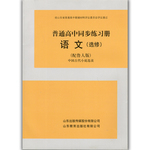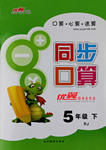题目内容
One day I was waiting in line to check out at Wal-Mart. Like a lot of people who want to get through a checkout line, my thoughts were on speed, nothing more. The line I was standing in wasn’t moving as quickly as I wanted, and I glanced toward the cashier.
There stood a man in his seventies. Of average build, he wore glasses and a nice smile. I thought, “Well, he’s an old guy and it probably takes him a little longer to get the chores done.”
For the next few minutes I watched him. He greeted every customer before he began scanning the items they were purchasing. Sure, his words were the usual, “How’s it going?” But he did something different—he actually listened to people. Then he would respond to what they had said and engage them in brief conversation.
I thought it was strange, but I guess I had grown accustomed to people asking me how I was doing simply out of a robotic conversational habit. After a while, you don’t give any thought to the question and just mumble something back. I could say, “I just found out I have six months to live,’’ and someone would reply, “Have a great day!’’
This old cashier had my attention. He seemed genuine (真诚的)about wanting to know how people were feeling. And after giving them the change, the old cashier looked the customers in the eyes. “I sure want to thank you for shopping here today, ’’he told them. “You will have a great day. Bye-bye.”
The looks on the faces of the customers were priceless. There were smiles and some shy grins (露齿而笑).All had been touched by his simple gesture in a place they never expected.
1.The author glanced at the cashier because of ______ .
A. the look of the old cashier
B. the slow speed of the checkout line
C. the smile on the cashier’s face
D. the long line of customers
2. In the fourth paragraph, the author intends to tell us ______ .
A. people usually have robotic conversations
B. no one cared about his health
C. people are not friendly to each other
D. he was suffering from a serious disease
3.What is special about the old cashier according to the author? He ______ .
A. worked hard at his old age
B. had usual conversations with customers
C. gave customers the right change
D. listened to people attentively
4.How did the customers probably feel after meeting the old cashier?
A. Quite ashamed of themselves.
B. Completely puzzled.
C. Unexpectedly moved.
D. Curious but happy
 海淀黄冈名师导航系列答案
海淀黄冈名师导航系列答案 普通高中同步练习册系列答案
普通高中同步练习册系列答案 优翼小帮手同步口算系列答案
优翼小帮手同步口算系列答案
